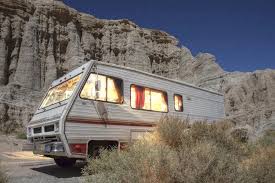
Breaking News
 Microsoft Hands Over Encryption Keys #fyp #technews #microsoft #computer #secure
Microsoft Hands Over Encryption Keys #fyp #technews #microsoft #computer #secure
 Windows Now Requires Age Verification? #fyp #technews #windows #microsoft #privacy
Windows Now Requires Age Verification? #fyp #technews #windows #microsoft #privacy
 Iran's new supreme leader is named as Ali Khamenei's son Mojtaba - Iranian TV network report
Iran's new supreme leader is named as Ali Khamenei's son Mojtaba - Iranian TV network report
 Bill Pervs Out Over Epstein Memories, Hillary Goes Berserk, And They Both Lied: Top Viral Moments...
Bill Pervs Out Over Epstein Memories, Hillary Goes Berserk, And They Both Lied: Top Viral Moments...
Top Tech News
 US particle accelerators turn nuclear waste into electricity, cut radioactive life by 99.7%
US particle accelerators turn nuclear waste into electricity, cut radioactive life by 99.7%
 Blast Them: A Rutgers Scientist Uses Lasers to Kill Weeds
Blast Them: A Rutgers Scientist Uses Lasers to Kill Weeds
 H100 GPUs that cost $40,000 new are now selling for around $6,000 on eBay, an 85% drop.
H100 GPUs that cost $40,000 new are now selling for around $6,000 on eBay, an 85% drop.
 We finally know exactly why spider silk is stronger than steel.
We finally know exactly why spider silk is stronger than steel.
 She ran out of options at 12. Then her own cells came back to save her.
She ran out of options at 12. Then her own cells came back to save her.
 A cardiovascular revolution is silently unfolding in cardiac intervention labs.
A cardiovascular revolution is silently unfolding in cardiac intervention labs.
 DARPA chooses two to develop insect-size robots for complex jobs like disaster relief...
DARPA chooses two to develop insect-size robots for complex jobs like disaster relief...
 Multimaterial 3D printer builds fully functional electric motor from scratch in hours
Multimaterial 3D printer builds fully functional electric motor from scratch in hours
 WindRunner: The largest cargo aircraft ever to be built, capable of carrying six Chinooks
WindRunner: The largest cargo aircraft ever to be built, capable of carrying six Chinooks
It's Not "Recreational" Anymore

The take-them-with-you portable homes, in other words, that people buy because they don't like sleeping on the ground or in a tent or a hotel when they go on vacation.
Increasing, they're being used as homes – by people whose next option is sleeping on the street.
In California, the government that caused this problem in the first place – by making homes unaffordable to buy and to keep (via obnoxious "property taxes," as this form of rent is styled) – is benevolently coming to the rescue by making it legal to live – as Chris Farley used to say – in a van down by the river.
Or curbside.
But only if you're a college kid or faculty member who can't afford another place to stay. Politico reports that "With one in four California community college students experiencing homelessness in the past year, Democrats – who have a supermajority in the statehouse – face increasing pressure to deliver on affordability issues."
Solution? Stop "busting" people for living in their RVs.
State Assemblyman Corey Jackson, who has "a doctorate in social work," says "lawmakers can build long-term solutions while offering an immediate stopgap for a 'worst case scenario' " according to Politico.
The worst case scenario has, of course, already happened. There was time when in America only vagrants slept on the streets because anyone who didn't want to – who was willing to work a 40 hour week – didn't have to. Because they could afford to sleep inside an apartment or a single family home.
It is now the case that tens of thousands – maybe more – are living in the streets of California's major cities because many of them can't afford the rents or the taxes that function as rents. Nationally, the average cost of a new home is about $400,000 now; in many parts of California – especially the parts anywhere near major cities such as LA and San Francisco – it is much higher. How many people under 30 can come up with the 10 percent in cash generally needed to qualify for a 30 year mortgage on a $400,000 home? Ten percent of that is $40,000. In cash. Good luck with that. How many people can come up with the rent, when it's 30 percent higher (about $2,400 per month) than the national average?
On the other hand, $10k or less can buy you a used RV and many people can still afford that.

 RNA Crop Spray: Should We Be Worried?
RNA Crop Spray: Should We Be Worried?

